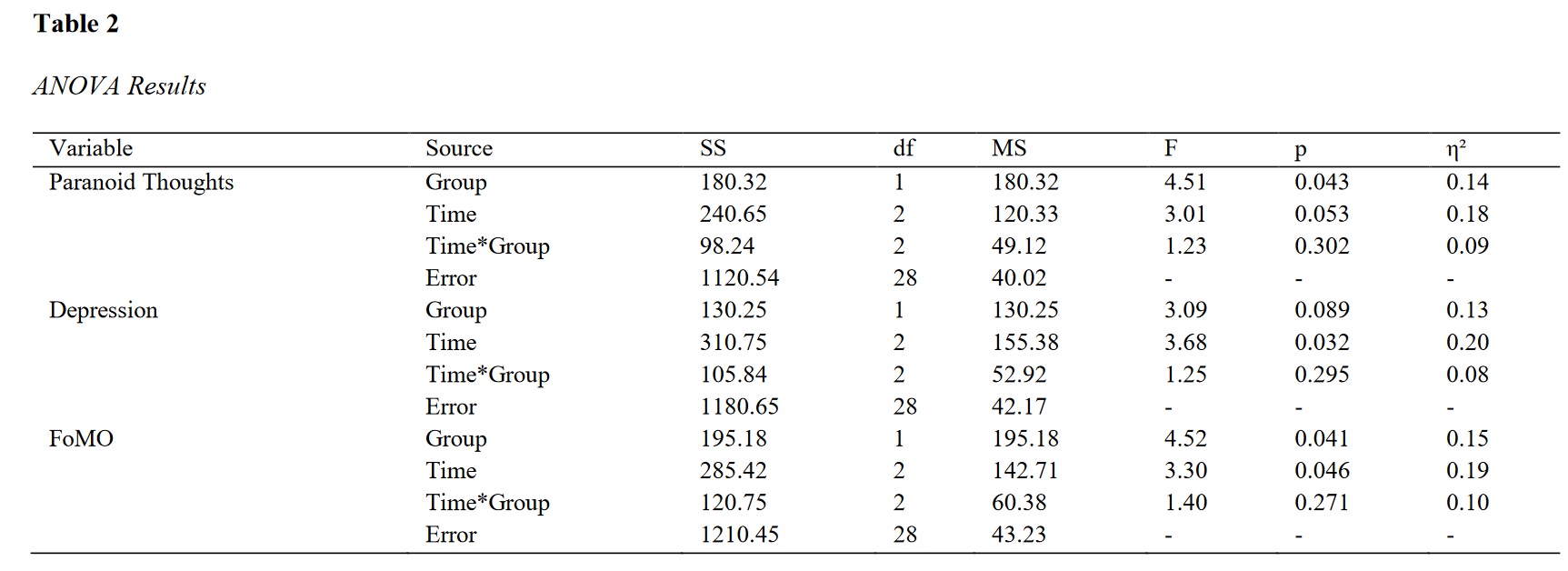The Effectiveness of Psychodynamic Therapy on Paranoid Thoughts, Depression, and Fear of Missing Out
Keywords:
Psychodynamic therapy, paranoia, depression, fear of missing out, emotional resilience, randomized controlled trial, women’s mental healthAbstract
Objective: This study aimed to examine the effectiveness of psychodynamic therapy in reducing symptoms of paranoid thoughts, depression, and fear of missing out (FoMO) in adult women.
Methods and Materials: A randomized controlled trial design was employed, with 30 adult women from Tehran randomly assigned to either an intervention group receiving 12 weekly sessions of psychodynamic therapy or a control group with no intervention. Each group contained 15 participants, and outcomes were assessed at three time points: baseline, post-intervention, and five-month follow-up. Key variables measured included paranoid thoughts, depression, and FoMO, with data collected using standardized psychological tools. Statistical analysis was conducted using SPSS-27, with repeated-measures ANOVA and Bonferroni post-hoc tests to assess within-group and between-group differences across stages.
Findings: The intervention group demonstrated significant reductions in all three variables—paranoid thoughts, depression, and FoMO—compared to the control group. ANOVA results revealed significant group and time effects, particularly for FoMO, where the intervention group showed a marked decrease from baseline to follow-up. Bonferroni post-hoc tests further indicated that these reductions were sustained over time, suggesting durable therapeutic effects of psychodynamic therapy on emotional resilience and symptom management.
Conclusion: Psychodynamic therapy appears effective in addressing paranoid thoughts, depression, and FoMO by helping individuals explore underlying relational conflicts and unconscious drivers. These findings underscore psychodynamic therapy’s value as a complementary approach to more structured therapeutic methods, particularly for individuals with complex, interconnected psychological symptoms. Integrating psychodynamic approaches into clinical practice may enhance long-term emotional resilience and reduce relapse risks.
Downloads

Downloads
Additional Files
Published
Issue
Section
License
Copyright (c) 2024 Tayebe Dadgar Rad (Author); Shahla Shokatpour Lotfi (Corresponding Author)

This work is licensed under a Creative Commons Attribution-NonCommercial 4.0 International License.









